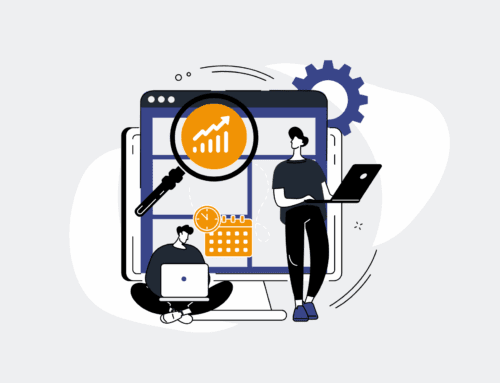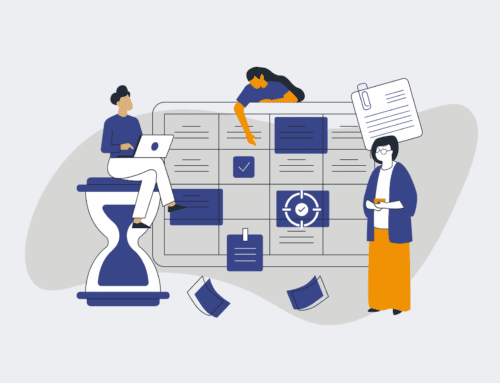Navigating the Legal Landscape of AI in Hiring Decisions: A Critical Guide for Business Leaders
The promise of Artificial Intelligence in revolutionizing talent acquisition is undeniable. From sifting through thousands of resumes in seconds to predicting candidate success, AI offers efficiencies that can drastically cut costs and time-to-hire. Yet, as businesses eagerly adopt these powerful tools, a complex and rapidly evolving legal landscape emerges. For leaders in HR, operations, and executive management, ignoring the legal implications of AI in hiring isn’t just risky – it’s an invitation to significant reputational damage and costly litigation. This satellite piece explores the critical considerations for businesses leveraging AI, ensuring they remain compliant and ethical.
The Promise and Peril of AI in Talent Acquisition
AI’s capacity to streamline recruitment processes, identify patterns, and reduce human error is a game-changer. It can broaden talent pools, improve candidate experience, and even enhance diversity efforts if implemented thoughtfully. However, the very algorithms that drive these efficiencies also carry inherent risks. AI models learn from vast datasets, which often reflect historical biases present in society and past hiring practices. Without careful design, monitoring, and auditing, AI can inadvertently perpetuate or even amplify discrimination, leading to significant legal exposure and ethical dilemmas.
Key Regulatory Frameworks and Legal Challenges
Bias and Discrimination: The Core Concern
At the heart of AI hiring challenges lies the issue of bias and discrimination. Federal laws such as Title VII of the Civil Rights Act, the Americans with Disabilities Act (ADA), and the Age Discrimination in Employment Act (ADEA) prohibit discrimination based on protected characteristics. AI systems can violate these laws through “disparate impact,” where a seemingly neutral algorithm disproportionately disadvantages a protected group, even without explicit discriminatory intent. For instance, an AI trained on historical data from a male-dominated industry might inadvertently favor male applicants. Businesses must proactively identify and mitigate these biases through regular fairness audits, diverse training data, and ongoing validation of their AI tools.
Transparency and Explainability (XAI)
The “black box” problem is a significant hurdle. Many AI algorithms make decisions in ways that are opaque, even to their developers. When a candidate is rejected by an AI, they, and increasingly, regulators, demand to know *why*. This need for transparency and explainability (XAI) is translating into concrete legal requirements. New York City’s Local Law 144, for example, mandates independent bias audits and public disclosure of audit results for automated employment decision tools. This trend underscores a broader move towards requiring businesses to understand, explain, and justify their AI-driven hiring decisions.
Data Privacy and Security
AI in hiring involves the collection and processing of vast amounts of sensitive personal data. Compliance with global data privacy regulations like GDPR, CCPA, and emerging state-specific privacy laws is paramount. Businesses must ensure they obtain explicit consent for data collection, implement robust security measures to protect candidate information, and establish clear data retention and deletion policies. The stakes are high; data breaches and non-compliance can lead to hefty fines and a loss of trust.
The Evolving Landscape: State and Local Laws
The regulatory environment for AI in hiring is a rapidly moving target. Beyond federal statutes, a patchwork of state and local laws is emerging. Illinois’ Biometric Information Privacy Act (BIPA), for example, has implications for AI tools utilizing facial recognition or voice analysis. California, Maryland, and other states are also exploring legislation to regulate AI use in employment. Staying abreast of these varied and often conflicting requirements demands a sophisticated and adaptable compliance strategy.
Proactive Strategies for Mitigating AI Legal Risks
Navigating this complex landscape requires more than just reactive measures; it demands a proactive, strategic approach rooted in ethical AI governance. This isn’t just about avoiding penalties; it’s about building trust, protecting your brand, and ensuring equitable hiring practices.
Establish Clear AI Governance Policies
Businesses must develop comprehensive internal policies for the ethical and legal use of AI in HR. This includes defining clear responsibilities, establishing audit protocols, and integrating legal reviews into the AI tool selection and deployment process. Regular training for HR professionals and hiring managers on AI ethics and compliance is also crucial.
Implement Bias Audits and Validation
Ongoing, independent audits of AI systems are non-negotiable. These audits should assess for disparate impact across protected classes and identify areas where AI decisions diverge from desired outcomes. Continuous monitoring and recalibration of algorithms, alongside the integration of human oversight at critical junctures, will help maintain fairness and accuracy.
Prioritize Transparency and Candidate Communication
Inform candidates clearly when AI tools are being used in their application process. Explain how these tools function and how decisions are made. Provide avenues for candidates to challenge or appeal AI-driven outcomes. Transparent communication fosters trust and demonstrates a commitment to fair employment practices.
Leverage Automation for Compliance and Audit Trails
This is where strategic automation becomes a powerful ally. Platforms like Make.com, expertly deployed by 4Spot Consulting, can orchestrate the complex data flows required for AI in hiring, ensuring consent management is automated, data is handled securely, and comprehensive audit trails are maintained. Our OpsMesh framework allows for the interconnection of disparate HR and AI systems, creating a “single source of truth” for all interactions. We help businesses automate the documentation of AI-driven decisions, anonymize data for compliance, and streamline data deletion processes to meet privacy regulations. This ensures not only efficiency but also an indisputable record of compliant operations.
4Spot Consulting: Your Partner in Compliant AI Automation
The legal landscape surrounding AI in hiring is undeniably intricate, but the transformational benefits of AI are too significant to ignore. At 4Spot Consulting, we specialize in helping high-growth businesses integrate AI ethically, legally, and profitably. Our approach begins with an OpsMap™ diagnostic, a strategic audit designed to uncover not only operational inefficiencies but also potential compliance gaps within your AI and automation strategies. We don’t just build; we plan with a deep understanding of legal requirements, ensuring your AI-powered operations are robust, scalable, and above all, defensible.
The future of talent acquisition is undeniably AI-driven. Embracing it responsibly, with proactive legal vigilance and strategic automation, is not just good practice—it’s essential for sustained success and ethical leadership in the modern enterprise.
If you would like to read more, we recommend this article: The Intelligent Evolution of Talent Acquisition: Mastering AI & Automation









